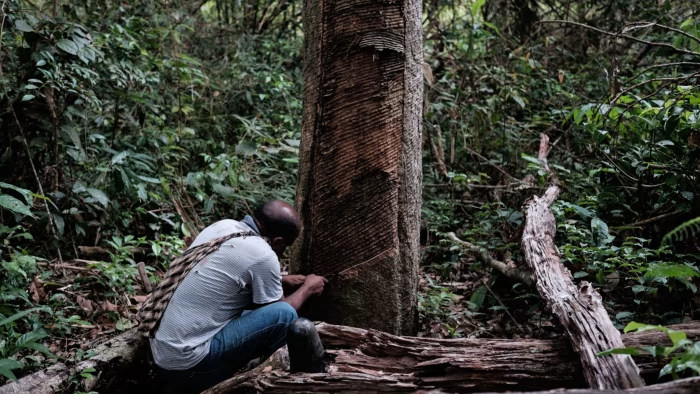
Unlock the Editor’s Digest for free
Roula Khalaf, Editor of the FT, selects her favourite stories in this weekly newsletter.
Some of the world’s biggest food and consumer goods companies have accused the European Commission of jeopardising its own green agenda by proposing to delay a landmark anti-deforestation law for a second time.
The law, known as the EUDR — which requires companies importing commodities such as cocoa, coffee, rubber, palm oil, soy, dairy and timber to prove they do not originate from deforested land — was due to take effect at the start of 2026, having already been postponed by a year.
But last month, the commission said that it would propose a second delay until the end of 2026, citing problems with its IT system designed to process data from importers.
EU officials have said the commission will formally propose the delay in the coming weeks. It will have to be agreed by the European parliament and member states.
Companies ranging from commodity traders to food manufacturers say they have spent millions preparing for the law and are frustrated by what they see as a lack of discipline in Brussels. Many are urging the commission to press ahead without the delay.

Ferrero, the Italian confectionery group behind Nutella and Kinder, said a delay risked undermining years of preparation and “sending the wrong message” to companies and farmers that had worked to meet the EU’s standards.
“Either we start implementing it seriously . . . otherwise we’ll never figure out how to do it,” Francesco Tramontin, Ferrero’s vice-president for global public affairs, told the Financial Times.
In a recent letter to EU environment commissioner Jessika Roswall, companies including Nestlé, Ferrero and commodities trader Olam Agri said postponing the law “puts at risk the preservation of forests worldwide”.
Olam Agri, which operates in the rubber and timber sectors, urged Brussels not to postpone implementation, arguing that by doing so, it “risks penalising companies that have invested early in compliance and could erode trust in the EU’s leadership on sustainability”.
Tramontin said delaying the law could end up “rewarding the laggards versus those who are leading the way” if the process allowed politicians to try and renegotiate parts of it.
“The risk is that some sectors that feel behind, they will try to push it down,” he added.

Campaigners fear that if negotiations are reopened it could pave the way to a significant watering down of the law. Rightwing MEPs are lobbying, for example, for a “no risk” category that would exempt EU member states.
Under the law in its current form, countries are benchmarked according to the risk of deforestation within their borders. So far only Russia, North Korea, Belarus and Myanmar are categorised “high risk”.
The rules have been criticised by EU trading partners, particularly Brazil, Indonesia and Malaysia, which are big exporters of products such as soy and palm oil to Europe. The US has also pressured Brussels for an exemption during trade negotiations.
MEPs from liberal and leftwing groups meanwhile urged the commission in a letter last week “to dedicate whatever human and financial resources are required to ensure that the system is fully operational by the end of this year”.
In their joint letter to the EU environment commissioner, the companies proposed that technical difficulties that held up implementation be treated as force majeure for importers.
They also called for an official commission notice to clarify this approach and to grant a short grace period of up to six months without fines while the system is fixed.
In addition, they want a technical working group of EU officials, national authorities, and businesses to co-ordinate and ensure the smooth rollout of the law.




